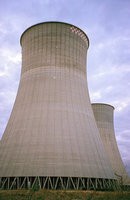While Japan has backpedaled on its initial post-Fukushima plan to phase out nuclear energy entirely by 2040, it remains on the path to wean itself off atomic power in direct response to last year’s nuclear disaster. With public anti-nuclear fervor showing little sign of abating since March 2011, policymakers continue to be under attack for not moving aggressively enough to shut down reactors more quickly and permanently. Yet even the gradual phase-out of nuclear power could be fatal to Japan’s economic as well as political future, as the country grapples with regaining its foothold in the global economy.
One major challenge facing Japanese policymakers is the prospect of decreased U.S. dependence on Middle East oil. In particular, the development of shale gas in the United States is a potential game-changer for U.S. energy policy, as the technological advances that allow tapping into hitherto inaccessible natural gas reserves will potentially allow the U.S. to move closer to becoming energy independent. Indeed, many energy experts believe that the United States could become self-sufficient as early as 2020. That, in turn, would decrease the U.S. commitment to stabilizing the Middle East, including by guaranteeing the safe passage of oil tankers in the Strait of Hormuz, through which more than one-third of the petroleum produced in the world passes. With Western Europe turning more to Russia to supply its energy needs in the form of natural gas, that would leave Asia alone in remaining dependent on fossil fuels from one of the world’s most tumultuous regions, without the benefit of the U.S. military’s security backstop. Japan remains one of the world’s biggest importers of Middle East crude, which accounts for nearly 90 percent of the country's total petroleum supply.
By itself, such a scenario should make Japan think twice about abandoning its nuclear energy program, former International Energy Agency executive director Nobuo Tanaka has argued. (Tanaka is also formerly a senior Japanese Trade Ministry official.) But there is also the practical consideration of how Japan can meet its energy needs as it phases out its nuclear reactors. Prior to the disaster at Fukushima, the worst nuclear accident in the country’s history, 30 percent of Japan’s energy needs were met from its nuclear reactors, with that share set to increase to more than 50 percent by 2030. While Tokyo has now scrapped 2040 as the deadline for abandoning nuclear energy, there is not yet a clear consensus on how long the deadline should be extended, or indeed if it could be abandoned altogether. Industry leaders have publicly voiced their concerns about the competitive disadvantage resource-poor Japan would face as a result of the nuclear energy drawdown.

